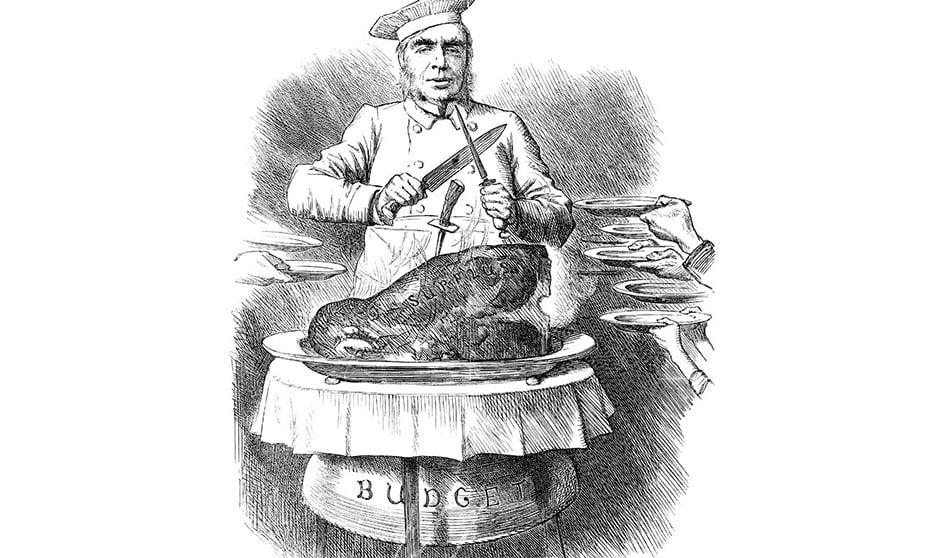
U of T law student Teodora Pasca says Legal aid cuts and the Student Choice Initiative threaten the future of the legal profession

Provincial cuts and opt-outs pose an imminent threat to student legal aid clinics — spelling trouble for marginalized clients and risking a shift in trajectory for an entire generation of lawyers.
The legal profession is now all too familiar with the Ford government’s devastating $133-million cuts to Legal Aid Ontario. These cuts have trickled down to 10 per cent funding losses to Ontario’s seven student legal aid services societies, the provincially-regulated law school clinics that provide crucial professional experience for lawyers-in-training.
Legal clinics across the province are experiencing alarming losses of tens of thousands of dollars, which has a direct negative impact on service provision and increases the risk of lay-offs. Less publicized, is that law-school-run clinics find themselves in a uniquely difficult position, because they also rely heavily on student fees to stay afloat.
Six of seven law school clinics in Ontario collect levy fees from students, an important funding source now threatened by the government’s so-called Student Choice Initiative, which allows university students to opt out of certain ancillary fees. Though individual students typically only pay a few dollars per session for university legal clinics, collectively, too many opt-outs will throw clinics into financial jeopardy.
At CLASP, Downtown Legal Services at the University of Toronto and the Community Legal Services program at Western University, levies make up 20-30 per cent of the budget. While DLS and CLASP brace for opt-out rates as high as 50 per cent, all clinics who rely heavily on levies are now in a position of grave financial uncertainty; not knowing how many students will decide to opt out, it is unclear how much these clinics have left to lose.
The government has neglected to classify law school clinics as “essential” services, which would exempt them from the opt-outs. But the legal profession knows better. Law school clinics not only provide legal services to those who cannot otherwise afford them — a feat in its own rite given that clinic workers help tenants keep their homes, workers keep their jobs and parents keep their children. They are also key hubs for experiential learning, especially in areas where the access to justice crisis in Ontario has become most dire, such as housing and immigration.
For law students across the province, an attack on our clinics is an attack on our future. Students who work at clinics often pursue careers that service marginalized communities, in fields where there is serious need for lawyers. Fewer practitioners in these areas means more people at risk of being wrongfully imprisoned, evicted, or deported.
Now clinics are rolling back on student hiring. Lacking money for training, they may have to turn away volunteers. There is talk of closing practice areas and leaving entire communities out in the cold.
To make matters worse, LAO cuts also impact clinics that are not run by universities, but which rely on student labour. Parkdale Community Legal Services, which partners with Osgoode Hall Law School, lost over $1 million in LAO funding this year and is now relegated to working out of a church basement. Advocates for Injured Workers is at risk of shutting down entirely.
Law firms charge clients hundreds of dollars per hour for the services that clinics offer at no cost. Free services have become essential in an incredibly stratified legal economy, where legal advice is, regrettably, often marketed as a luxury good.
Despite Premier Doug Ford’s accusation that legal aid was fleecing clients and lining lawyer’s pockets, lawyers working on legal aid know all too well how little it pays per file. Meanwhile, prospective lawyers find themselves bludgeoned with immense overhead costs. Tuition, bar fees and mandatory membership to the Law Society of Ontario can balloon into tens or hundreds of thousands of dollars. The government cut tuition by 10 per cent this year, but it also slashed provincial Ontario Student Assistance Program grants, leaving many law students in the same position of crippling debt.
Consequently, even students passionate about access to justice often find themselves gravitating towards corporate careers. Bay Street firms have both the resources and the prestige in many law schools to continually hire students year by year. Although many of these firms have demonstrated an admirable commitment to pro bono work, due to staggering retainer fees and overwhelmingly corporate clientele, overall, they remain inaccessible to the communities that clinics serve.
To those who point to Ontario’s ballooning debts, cuts to legal aid do not save money in the long run. High volumes of self-represented litigants drain time and resources from our justice system, which is already cracking under an unmanageable caseload. And while students who opt out of clinic fees may pocket the cost of a few cups of coffee, the Student Choice Initiative does nothing for Ontario’s bottom line.
Today, cuts and opt-outs are hurting marginalized clients. Eventually, they will deteriorate the legal profession. We need to treat this situation as what it is: an access to justice emergency.
Teodora Pasca is a student at the University of Toronto Faculty of Law. She volunteered with Pro Bono Students Canada in 2018-2019 and is now in the clinical program at Downtown Legal Services.